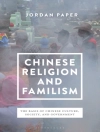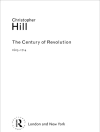Since 1963, the state of Israel has awarded the title of “Righteous among the Nations” to individuals who risked their lives sheltering Jews during the Holocaust. This distinction remained solely an Israeli initiative until the late 1990s, when European governments began developing their own national categories, the most prominent of which was the “Righteous of France, ” honoring those who protected Jews during the Vichy regime. In National Policy, Global Memory, Sarah Gensburger uses this dramatic episode to lend a new perspective to debates over memory and nationhood. In particular, she works to combine two often divergent disciplines—memory studies and political science—to study “memory politics” as a form of public policy.
Daftar Isi
Acknowledgments
Introduction: From “The Righteous among Nations” to the “‘Righteous of France”
Chapter 1. Memory as an Instrument of Foreign Policy?
Chapter 2. Memory Entrepreneurs and the French Space
Chapter 3. Memory Public Policy and Transfers
Chapter 4. The National Day as a Public Policy Instrument
Chapter 5. Social Norms and Memorial Categories
Chapter 6. Memory Policy and Institutions
Epilogue: The “Righteous of France” in the Pantheon
Appendix A: Methodology and Corpus
Appendix B: Detailed References of Official Texts
Bibliography
Index
Tentang Penulis
Trained in the social sciences, Sarah Gensburger is a sociologist of memory and a historian of the Holocaust. She is currently a researcher at the French National Center for Scientific Research (CNRS-ISP) and the author of Witnessing the Robbing of the Jews (Indiana University Press, 2015), co-author of Nazi Labor Camps in Paris (Berghahn Books, 2011) and co-editor of Resisting Genocides: The Multiple Forms of Rescue (Columbia University Press, 2011).












